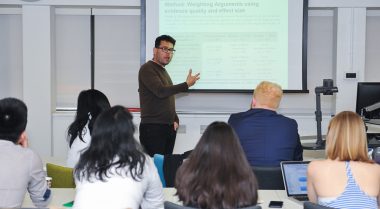Arturo Gonzalez-Izquierdo
Research Associate at University College London (UCL)

Dr Arturo Gonzalez-Izquierdo has a background in applied statistics, specialising in the use of statistical methods for data analysis in medicine. During his postgraduate studies at Imperial College London, his research focused on the use of data generated during the delivery of healthcare to determine epidemiological associations in the aetiology of disease. His doctoral research approached the risk prediction for admission to hospital from a longitudinal perspective taking into account factors from early life, measured longitudinally across childhood and adolescence and using data from a large ongoing cohort study, the 1966 Northern Finland Birth Cohort linked to national administrative hospital data. During his post-doctoral research at the UCL Institute of Child Health, Arturo gained further experience in epidemiological studies using routinely collected health data, particularly in the extraction and curation of data from electronic health records for longitudinal epidemiology and data analysis for population-based, institutional and international comparisons of patient classification. During this time he had access to country-wide, patient-level datasets from a wide range of data providers and varying range of geographical coverage, from countries such as the US, Australia, England, Scotland and Wales. He had access to detailed episodic data such as the Hospital Episode Statistics (HES, England), the Kid’s Impatient Database (HCUP KID, USA), The Scottish Morbidity Records (SMR01, NHS Scotland), the Hospital Morbidity Data System (HDMS, Western Australia) and the Patient Episode Database for Wales (PEDW, Wales). This was a great opportunity to further his knowledge on data security, confidentiality requirements and information governance necessary to accessing data; as well as the inclusion of these aspects in the statistical methods and informatics for valid epidemiological research. As a result of his constant contact with the use of very large health related datasets and a variety of computational software for their management and statistical analysis, Arturo transitioned into the area of Clinical Data Science to explore different approaches that combine statistical thinking, epidemiology and computer science.


